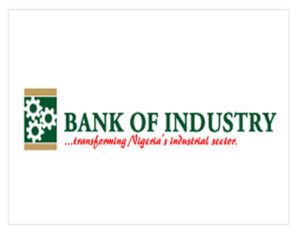Nigerian banks’ bad loans hits N478bn as economy falters
By Sodiq Adelakun
During the first half of this year, four banks in Nigeria recorded a total of N478 billion in non-performing loans, according to their financial results.
These banks include Guaranty Trust Bank Holding Plc (GTCO), FBN Holdings Plc, FCMB Group Plc, and Fidelity Bank Plc.
This figure represents a 16 per cent increase from the N413.36billion reported in the previous full year.
FBN Holdings reported N226.24 billion in non-performing loans in the first half of 2023, compared to N204.29 billion in 2022.
With a non-performing loan ratio of 4.3 per cent and gross loans and advances of N5.26 trillion, FBN Holdings declared a 5.4 per cent non-performing loan ratio and N3.79 trillion in gross loans and advances in the 2022 financial year.
GTCO reported N115.29 billion in non-performing loans in the first half of 2023, up from N102.37 billion in the previous financial year.
GTCO in its presentation to investors and analysts said, “The Group’s IFRS 9 Stage 3 loans closed at 4.6 per cent (Bank: 3.6per cent) in H1-2023 from 5.2per cent (Bank:4.7 per cent) in 2022. With Individuals and Others emerging as sectors with the highest NPLs i.e., 20.9 per cent and 30.96 per cent respectively.
“IFRS 9 Stage 3 loans grew marginally to N115.3billion in H1-2023 from N102.8bn in 2022, primarily driven by exchange rate impact as the Group continued to deleverage in Ghana and Kenya and carried out derecognition of fully provided facilities in the Nigerian book.”
Fidelity Bank and FCMB Group, two major banks in Nigeria, have reported an increase in non-performing loans (NPLs) in the first half of 2023. Fidelity Bank’s NPL value rose to N84.73billion from N61.37billion, while FCMB Group declared N52.66billion in NPLs compared to N45.01billion in 2022.
Additionally, they have been debiting the accounts of borrowers who have consistently failed to repay their loans in order to reduce the volume of NPLs. In 2020, the Central Bank of Nigeria (CBN) introduced the Global Standing Instruction (GSI) guideline to tackle NPLs in the banking sector and monitor loan defaulters.
The GSI allows banks to recover outstanding loan amounts, including principal and interest, from any account held by the debtor across all financial institutions in Nigeria.
According to a report by the CBN, the capital adequacy ratio (CAR) and liquidity ratio (LR) of Nigerian banks have remained above the minimum thresholds.
Although the CAR decreased to 11.2 per cent in 2023 from 14.1 per cent, it still exceeded the prudential requirement of 10.0 per cent. The LR also increased significantly from 42.6 per cent in June 2022 to 48.4 per cent in June 2023, surpassing the regulatory minimum ratio of 30.0 per cent.
These developments indicate that Nigerian banks are taking measures to address the issue of NPLs and maintain the required levels of capital adequacy and liquidity.




